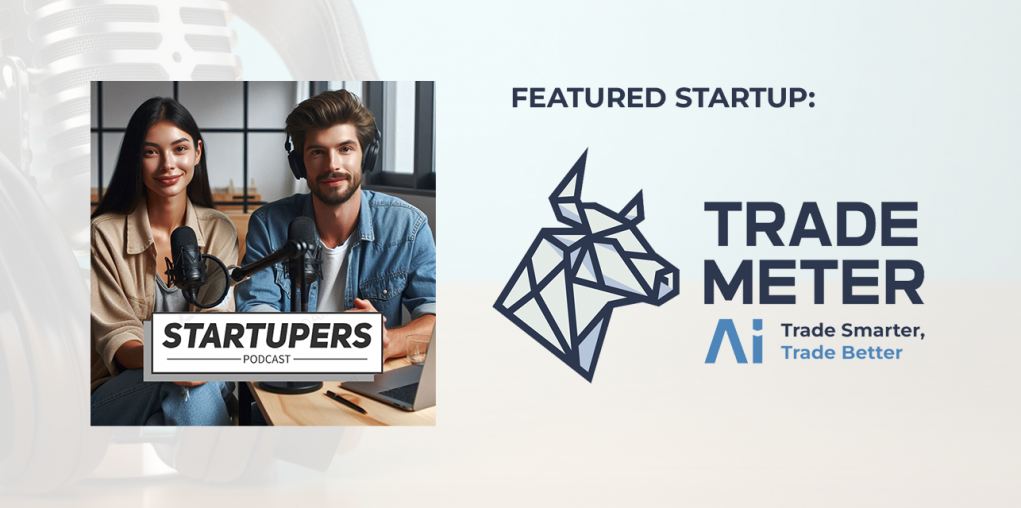20 Excellent Ideas For Picking Coincheckup Websites
20 Excellent Ideas For Picking Coincheckup Websites
Blog Article
Top 10 Tips To Help Assess The Costs And Pricing Of Ai Trading Platforms That Can Predict Or Analyze Stock Prices.
To make the most of your investment it is essential to understand and compare pricing for AI software that predicts and analyzes stocks. Prices vary widely and it's crucial to know the value you get value for your money. Here are 10 top strategies for evaluating pricing and cost.
1. Learn Pricing Model
Subscription based: Verify whether the platform is charged monthly or annually, and what features are included in each tier.
Pay-per-use: Check whether the platform charges you depending on the amount of usage (e.g. the number of transactions, requests for data or forecasts).
Freemium: Check if a platform has an unrestricted free tier or adds additional charges to access premium features.
2. Compare Pricing Tiers
Overview of features: See the features included in each price tier (e.g. basic, professional, or enterprise).
Scalability - Make sure your pricing tiers are compatible with your requirements.
Upgrade flexibility: See if your plan can be easily upgraded or downgraded when your requirements change.
3. Evaluate Hidden Costs
Data fees - Determine if the platform charges an additional cost for access to the most valuable information (e.g. information in real time or advanced analytics).
Brokerage fees Check to see whether the platform is charged additional charges for trading or connect with brokers.
API usage: Assess if API access costs are more expensive or if API use is frequent.
4. Assess Free Trials and Demos
Trial period. Check out platforms that offer the option of a demo or trial to let you try their features out before committing.
Trial limitations: Decide if you can use all the features of the trial, or only the trial's features in a limited amount.
Choice of no-commitment: Be sure you can cancel your trial if it doesn't fit your needs.
5. Find the most recent discounts and promotions
Discounts for annual subscriptions: Find out whether your platform offers discounts on subscriptions that are paid annually, compared to plans that are paid monthly.
Referral programs: Check if you can get discounts or credits by making others aware of the platform.
Inquire about institutional or bulk pricing if your organization is large.
6. Calculate the Return on investment
Cost and. worth: Evaluate whether the features and forecasts of the platform justify its cost. It could help you save money or make better trading decision-making.
Track record of performance - Study the platform's success rates or user testimonials to get an idea of its potential return on investment.
Costs of alternative: Compare the platform's costs with the cost of not using the platform (e.g. missed opportunities, time spent manually analyzing).
Review Cancellation Policies
Cancellation terms: Ensure you can cancel your subscription with no penalties or hidden charges.
Go through the policy on refunds to determine what you can claim as a refund for any non-used subscriptions.
Auto-renewal Check to determine whether your platform automatically renews and find out how you can opt out.
8. Price transparency is essential.
Price page that is clear: Make sure the platform has a detailed and up-to-date pricing page with no hidden charges.
Customer Support: To clarify unclear prices and charges, call customer support.
Contract Terms: Check the conditions of service to determine if there are any long-term agreements or penalties.
9. Compare to Competitors
Comparing the features and prices of platforms with their competitors will help you get the most value.
User reviews: Read the feedback of users to determine whether the cost of the platform is a good value.
Examine the positioning on the market for the platform. Does it match your expectations?
10. Think about the long-term costs
Price increases Look through the history of the platform to determine how often it has increased prices.
Additions to features: Check if new features are included in your current plan, or require an upgrade.
Scalability Costs: Make sure platform pricing remains reasonable when your trading activities or requirements for data increase.
Bonus Tips
Free trials of multiple platforms are available for you to try and compare the advantages and performance of different platforms.
Negotiate pricing: If you're a large-volume user or part of an institution, inquire about special pricing or discounts.
You should look into educational tools and resources. A lot of platforms offer free tools or educational materials which could be great additions to their main features.
These guidelines will allow you to evaluate the cost and value of AI trading platforms that forecast or analyze price fluctuations in stocks. So, you'll be able to pick the best platform that matches your budget with the features and capabilities you require. A reputable platform will provide an appropriate balance of cost and performance, which will help you to maximize your trading performance. Read the top rated ai for trading advice for site advice including ai stocks, stock analysis app, ai stocks to invest in, ai stock trading app, best stock analysis app, coincheckup, ai trading tools, chart analysis ai, ai stock market, stocks ai and more.
Top 10 Ways To Evaluate The Regulatory Compliant Of Ai Stock Predicting/Analyzing Trading Platform
When it comes to evaluating AI trading platforms, compliance with regulatory requirements is a crucial aspect. Compliance is essential as it guarantees that the platform adheres to regulations and legal frameworks. It also protects the users' personal information. Here are top 10 tips on how to assess the level of compliance these platforms have.
1. Verify Registration and License
Regulators: Confirm that the platform is licensed and registered by the relevant financial regulatory authority (e.g. SEC, FCA, ASIC, etc.) in your nation.
Verify that brokers who are integrated into the platform are licensed and licensed and.
Public records: Search the regulator's site to determine whether the platform was registered or if it has ever violated the law.
2. Compliance with Data Privacy Evaluation
GDPR - If your website operates within the EU and/or serves users from the EU make sure that it complies with GDPR.
CCPA For Californian users, check compliance with California Consumer Privacy Act.
Data handling policy: Ensure that you go through the platform's privacy policies to know how users' data is gathered and stored.
3. Evaluation of Anti-Money Laundering/AML measures
AML policies: Make sure that the platform is equipped with a robust AML policy to identify and stop any form of money laundering.
KYC procedures Check to see whether your platform is following Know Your Customer processes for authenticating user identities.
Monitoring transactions: Find out if the platform can monitor transactions and reporting any suspicious transactions to relevant authorities.
4. Make sure you are in compliance with Trading Regulations
Market manipulation: Ensure that the platform contains measures to stop market manipulations such as spoofing, wash trading.
Order types: Verify if the platform complies with rules regarding types of orders (e.g., no illegal stop-loss hunting).
Best execution: Make sure your platform is following the most efficient execution procedures. This will ensure that trades are completed at the most competitive price.
5. Cybersecurity Assessment
Data encryption: Ensure that the platform safeguards your data during transit and while at rest by encrypting it.
Response to incidents: Verify if the platform has a clearly defined incident response plan in case of cyberattacks or data breaches.
Certifications: Make sure the platform has cybersecurity certifications.
6. Examine Transparency and disclosure
Fee disclosure - Make sure all fees are revealed, including extra charges or hidden costs.
Risk disclosure: Ensure that the platform is transparent about the risks involved, particularly if you are using high-risk strategies, or trading using leverage.
Performance reporting: Check if the AI platform's models are clear and correctly and accurately reported.
7. Verify that you are in compliance with International Regulations
Trading cross-border: If you want to conduct international trade, ensure that your platform is legal with all applicable laws.
Tax reporting: See whether the platform provides tools or reports to assist users comply with tax laws.
Compliance with international sanctions: Be sure the platform adheres strictly to these and doesn't allow trading with prohibited entities or countries.
8. Assess Record-Keeping, Audit Trails
Transaction records: Make sure the platform keeps detailed records of all transactions to ensure audit and regulatory compliance.
User activity logs - Make sure that the platform records all user activity including logins to the platform, trades that are made and any modifications to account settings.
Audit readiness: Determine if the platform is able to provide documentation and logs in case of a regulatory audit.
9. Verify compliance with AI Specific Regulations
Algorithmic trading rules: If the platform is able to support algorithmic trading, ensure it complies with regulations like MiFID II in Europe or Reg SCI in the U.S.
Fairness and Bias: Make sure that the platform monitors biases and minimizes them in its AI models to guarantee fair trade.
Explainability: As stipulated by specific regulations, the system must provide clear explanations of AI-driven decisions and predictions.
10. Review the User's Feedback and the The Regulatory History
Feedback from users: Read user reviews to assess the reputation of the platform for compliance with the law.
History of regulation: Determine whether the platform has any history of regulatory violations, fines, or penalties.
Third-party auditors: Check if the platform is audited regularly by third parties to make sure it is adhering to the rules.
Bonus Tips:
Legal consultation: Consider consulting a legal expert to review the platform's compliance with pertinent laws.
Trial period: Take advantage of a demo free or trial to test the features of the platform that are compliant.
Customer support: Make sure the platform offers support in case of questions or problems with respect to compliance.
If you follow these guidelines that you will be able to assess the compliance with regulations of AI stock predicting/analyzing trading platforms making sure you select one that adheres to legal frameworks and protects your rights. Compliance does not just help minimize legal risks, it also increases confidence in the platform. Follow the recommended her comment is here for ai stock picks for website advice including best ai for trading, best artificial intelligence stocks, ai investing app, best ai etf, ai for investing, getstocks ai, incite, copyright advisor, best ai etf, stock ai and more.